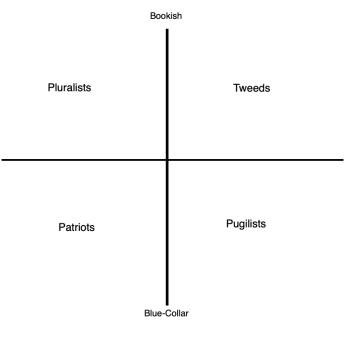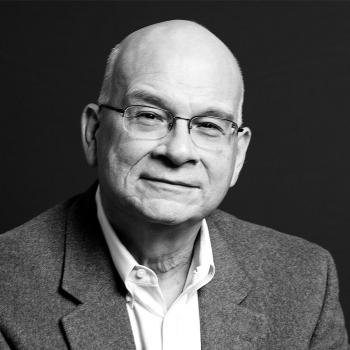
For the last couple of weeks, I haven’t been able to stop thinking about this astonishing feature story in Foreign Policy magazine. The article explains that a number of indigenous tribes in Brazil still routinely kill disabled children who would (traditionally) be unable to survive under harsh jungle conditions. “Those targeted include the disabled, the children of single mothers, and twins — whom some tribes . . . see as bad omens.”
As someone previously under the impression that such practices were a vestige of the past, I find it stunning that such killings have gone on openly for decades. More shocking still, though, is the fact that a bill outlawing the practice is actually being met with opposition: “[W]hat may seem an overdue safeguard has drawn widespread condemnation from academics and indigenous rights groups in the country. . . . One anthropologist at Funai, who asked not to be identified because he is not authorized to speak on behalf of the foundation, argues that child killing among indigenous peoples must be understood in the context of the Amazon’s incredibly harsh environment.” The article goes on to explain that the bill “immediately created tensions between those who champion universal human rights, which prioritize the individual, and those who support cultural relativism, which favors the freedom of communities to organize themselves according to their own moral codes.”
First things first: I find it difficult to comprehend the degeneracy of those who would sanction such killings in the name of “preserving culture.” I have to wonder whether these anthropologists would hold that laws against murder are similarly unjustified in high-crime areas where violence is commonplace. After all, why infringe on those areas’ local norms? (And yes, I realize this is particularly low-hanging fruit, but I can’t help pointing out that such relativism is the logical terminus of any intellectually honest attempt to simultaneously secularize and privatize morality.)
Yet upon reflection, I’m also aware that my outrage is grounded in my own worldview—indeed, modern liberal “human rights” frameworks are predicated on deeply Christian assumptions about the dignity of the person. This should surprise no one, given the intimate involvement of Thomistic Catholic philosopher Jacques Maritain in shaping the UN’s Universal Declaration of Human Rights. To accept “universal human rights” as a value is typically to acknowledge that some ethical imperatives are binding in all times and in all places. (And as I’ve argued elsewhere, this necessarily—and, perhaps, controversially—entails the ability to make judgments about the extent to which certain cultures uphold those imperatives.)
Obviously, the rise of “human rights” has led to ferocious debates about the substantive content of the concept. Beyond life, liberty, and property, do individuals enjoy a right to education? To healthcare? To housing? (Samuel Moyn’s careful exploration of this question is particularly fascinating.) And more crucially, what happens when there’s a gap between a developed regime of “human rights” and the norms of a given community?
For a nuanced illustration of this difficulty, consider the notion of “dignitary harm,” which Douglas NeJaime and Reva Siegel describe as “the social meaning, including stigma, which may result from accommodating complicity-based objections”—that is, an individual’s religious objection to providing an individual with a particular good or service. If a Catholic hospital refuses to provide abortions or contraceptive services, the argument runs, a patient’s dignity is wounded because the hospital’s behavior “reflects and reiterates a familiar message about contested sexual norms.” NeJaime and Siegel conclude that “in advancing complicity-based claims . . . mobilized groups and individuals may seek to enforce traditional norms against those who do not share their beliefs. Accommodation of these claims may undermine, rather than advance, pluralistic values.” (By “pluralistic values,” I infer they mean an amorphous web of human rights commitments.) In short, here we see a conception of “universal human rights” that clashes not only with the conception of human rights presumably held by post-Maritainian Catholics, but with the internal norms of Catholic communities writ large.
The case of the Brazilian tribal killings illustrates the universal rights/community norms dichotomy in the starkest possible terms. It is crystal clear (at least to me, and hopefully most morally sane people) that the tribal practice of killing disabled children is aberrant. But similarly, it is crystal clear to NeJaime and Siegel that religious objections to neutral laws risk infringing the dignity of those who do not share such beliefs, and that such infringement is aberrant.
This explains why, in general, I tend to take a fairly circumscribed view of what falls under the banner of “human rights”—in the sense that I’m generally uncomfortable with the state’s use of force to secure certain ends and compel compliance (particularly in the context of religious liberty). I recognize, though, that conscience claims can’t be totally absolute: if a given tribe sacrifices disabled children to its local god rather than merely killing them outright, the evil of child-killing isn’t mitigated by the fact that there’s a religious reason involved.
This leaves us with the critical question: when is a human right sufficiently universal that it can be enforced cross-contextually? And that is a fraught question indeed.
Some answers, I think, hold more promise than others. For example, classical liberal thought takes the “non-aggression principle” as axiomatic and reasons outward from there: the closing pages of Robert Nozick’s seminal work Anarchy, State, and Utopia sketch a vision for social order structured around this idea. Under such a regime, child-killing could clearly be prohibited as an intrinsically violent act. I’m particularly attracted to this idea due to the the potential viability of the non-aggression principle as a framework for a pluralistic society. That is, it is intelligible to people of many faiths and of none (as a Christian, I’m obviously of the view that the normativity of the principle really does need to be grounded in something beyond itself, but the principle can still be articulated in utilitarian terms).
That said, far more work needs to be done to establish the appropriateness of the principle as a mediator between universal human rights and communitarian norms. (Consider the question of circumcision: is this “aggression” of sorts? And how ought one characterize a community’s “soft aggression” that relies on stigma rather than brute physical force?) Further thoughts to be developed in time.












